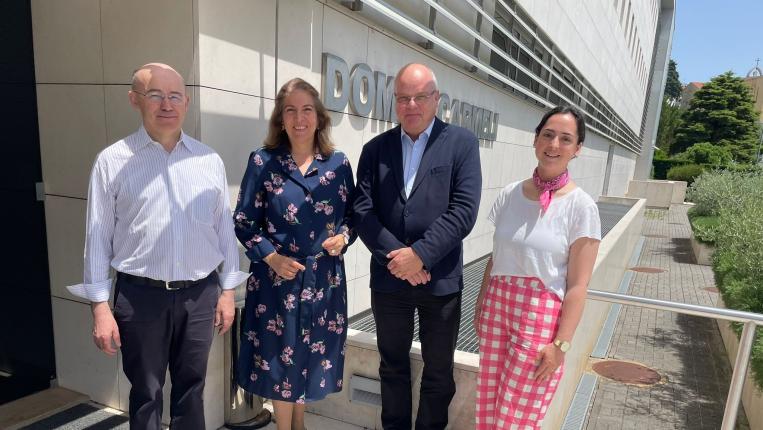"As the first of the SDGs is the eradication of poverty, we also know that the 2030 agenda is the one we are furthest from achieving.". It was with these words that Isabel Capeloa Gil, President of the Universidade Católica, kicked off the Shades of Poverty: Challenges to Integral Human Development conference on 25 November.
As part of the Post-Doctoral Program in Integral Human Development, a programme that aligns the University's mission with the vision of science, the event's main objective is to debate the multiple dimensions of poverty and propose possible solutions.
According to the President, "we need political will. But for political will to happen, what the university does is fundamental: studying, influencing, so that initiatives like this can happen".
During her speech, Isabel Capeloa Gil highlighted the two biggest risks in the approach to poverty. The first is naturalisation, namely, normalising poverty. The second is blaming, believing that people are "to blame for their own situation".
The answer, he argues, lies in "thinking about poverty from an interdisciplinary perspective", as is the case with the Post-Doctoral Program in Integral Human Development at Católica.
In the same vein, the Vice-Rector of the University and Director of the Católica Doctoral School, Peter Hanenberg, emphasised the importance of a comprehensive reflection on poverty, "drawing attention to the many moments in which poverty manifests itself. Poverty is not just hunger, or poverty of material conditions.".
The conference, which takes place on November 25 and 26 at the Universidade Católica Portuguesa, is organised by the 2nd cohort of the Post-Doctoral Programme, which ends its projects at the beginning of 2025.
This meeting has the dual aim of promoting interdisciplinary dialogue around poverty, understanding it in a holistic way that encompasses the deprivations that people face in all areas of their lives, and of offering answers for its eradication, based on contributions from different fields (humanities, social sciences and health), always with integral human development in mind.



